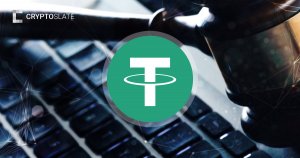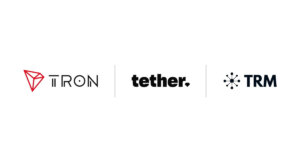Reserve’s “Trustless, Worldwide” Stable Coin [INTERVIEW]
Photo by Lukas Bato on Unsplash
The new golden boys of decentralized finance, stablecoins have exploded into an industry-wide effort to dissolve cryptocurrency’s seemingly unshakable volatility. As a torrent of solutions gain a foothold in the market, however, one startup seems to spy an elephant in the room, and they think they have the answer.
For Reserve’s Co-Founder Nevan Freeman, Bitcoin almost had it spot-on—a decentralized, censorship-resistant currency architecturally indifferent to governments—and yet one that was fundamentally cursed by its instability.
Having “lost faith” in Satoshi’s creation in 2012, it wasn’t until last year’s market bonanza that the penny dropped for Freeman, and he scrambled a 45-strong team in the Bay Area, who became immersed in the “sociological” quandary of cryptocurrencies’ stability.
That team today is Reserve, who after “thousands of hours” of research, boiled down current stable coin types into two categories—asset-backed and internal decentralized collateral-backed—both of which may be equally destined for rough waters.
A Risky Business
As Freeman suggested, asset-backed stable coins run the all the textbook risks inherent in centralized operations—whether being “shut down by governments”, inflated, manipulated, or having regulatory entities “freeze and burn coins at will”. Tether’s USD-pegged USDT, for one, may be the poster-child of Freeman’s concerns, having been roiled by months worth of question marks over solvency and criminal enquiry.

Indeed, the plight of fundamentally centralized stable coins surely spawned the search for more decentralized solutions to stability, which seem to devise ever more sophisticated methods of creating a price-constant token.
Engineered solutions such as Basecoin, Havven or Terra have reached out for the holy grail that is government-resistant stability, and yet to Freeman, these suffer a higher chance of default. He explained that the stability of all of these efforts counts on a system dependent on future fees, or future growth—both are not sustainable, he suggested, stating:
“It’s actually a sort of much more complicated version of a bubble, as long as it’s going up, everyone wants to buy in, as long as it’s going down, nobody wants to buy it.”
Reserve: Stability through Diversification
To Reserve, the answer to sustainable stability lies in the investor’s age-old mantra of diversification.
By overcapitalizing their stablecoin backing with a combination of assets—such as Ether, gold-backed cryptocurrencies, and TUSD—Freeman insisted that Reserve will eliminate any one point of failure and eliminate the risk of default while providing all the bells and whistles expected of a decentralized cryptocurrency: transparency, immutability, and censorship-resistance. Or, as the co-founder put it, a token that’s “a bit like Bitcoin—if you don’t like it, you can’t turn it off”.
Unlike the free-floating rogue that is Bitcoin, however, each Reserve token will be initially pegged to one US dollar, but will eventually abolish any association with fiat entirely.
According to Freeman, such qualities fulfill Reserve’s ideological mission to create a trustless, worldwide reserve currency independent of fiat—one as accessible as “any other crypto-asset” that provides a freely tradable and stable store of value to all; from traders seeking a hedge, to citizens of embattled economies.
When it comes to redemption, holders of Reserve will be able to cash in for underlying assets via the coin’s ‘Vault’ Ethereum smart contract—a feature that instills confidence by design, Freeman states:
“You can be really, really confident that you can redeem your tokens because you don’t have to depend on some company, trust, or government, it’s just the code.”
Judging by the project’s backing, such a mission has resonated with some depth throughout the halls of financial innovation—in June drawing angel investment from Coinbase and PayPal founder Peter Thiel, amongst others.
Timelines have not been set in stone for the launch of Reserve, yet the project’s co-founder revealed the coin was currently in live beta on the Ropsten network and hinted at a full release in the coming months.



 CryptoQuant
CryptoQuant 
















































































